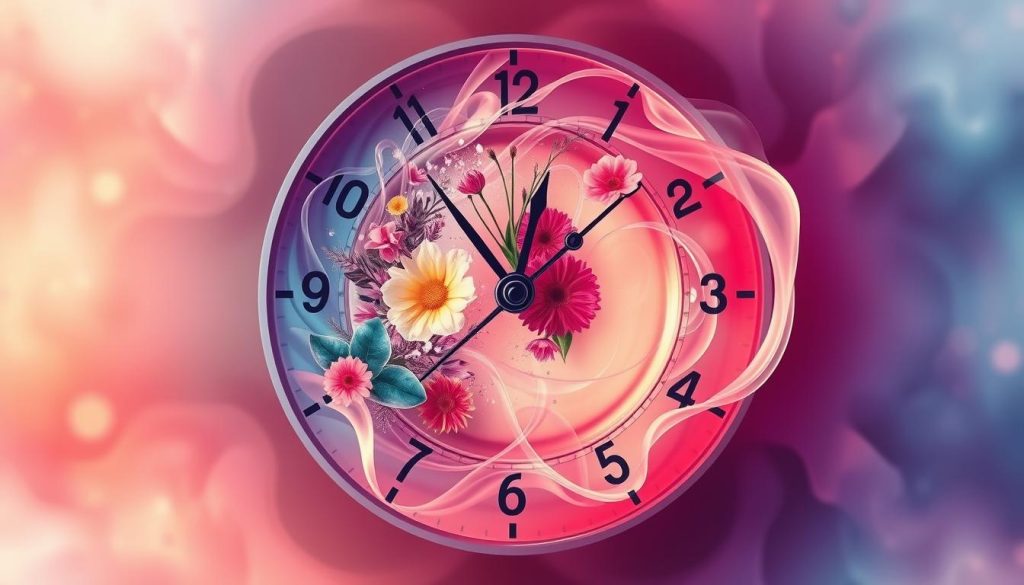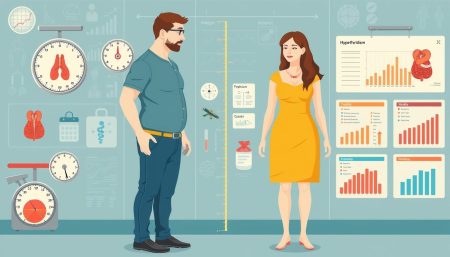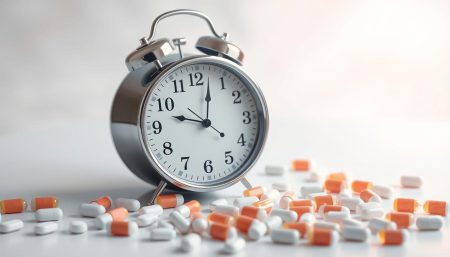Having a period that only lasts 3 days can make you feel both relieved and worried. Menstrual health is complex, and even small changes can raise many questions. This guide explores the reasons behind short periods and aims to help you understand your menstrual experiences better.
This quick guide focuses on the factors that affect how long your period lasts. It helps you understand if a 3-day period is normal and what it might mean for your health. Paying attention to your menstrual cycle is important, whether it’s long or short. Let’s look into why your period might have been so brief.
Understanding the Normal Menstrual Cycle Duration
Knowing what a normal menstrual cycle is can help spot any odd patterns. The length of a cycle affects a woman’s health and mood. It’s key for women of all ages to understand this.
What Constitutes a Regular Menstrual Cycle
The Office on Women’s Health says a regular cycle is about 28 days. But, it can vary from 21 to 35 days. Hormones, health, and stress can change this.
How Menstruation May Vary Month-to-Month
The Journal of Clinical Endocrinology and Metabolism talks about monthly changes in menstruation. These can be small or big. Many things, like our body’s health and the environment, can cause these changes.
| Factor | Effect on Menstrual Cycle Duration | Typical Variation Range |
|---|---|---|
| Hormonal Changes | Can shorten or lengthen the cycle | 21 to 35 days |
| Stress Levels | High stress can lead to shorter cycles | Quick menstruation |
| Physical Health | Poor health can increase irregularities | Varied |
It’s important to understand the menstrual cycle’s details. Knowing how health and environment can change it is key. This helps keep reproductive health in check and prepares for any cycle changes.
Common Causes of a Short Menstruation
There are many reasons why some people have a short menstrual period. These include hormonal changes, lifestyle changes, and stress levels. These factors can greatly affect how long your menstrual cycle is and your reproductive health.
Hormonal Fluctuations Impacting Menstruation Length
Hormonal imbalances often cause brief menstruation. Hormones like estrogen and progesterone control menstruation. Conditions like PCOS, thyroid issues, and early menopause can change these hormone levels. This can make your menstrual cycle shorter.
Lifestyle Factors Contributing to Shorter Periods
Your diet, exercise, and health are key to your menstrual cycle’s length and regularity. Too much exercise and not enough food can make your cycle shorter. These lifestyle choices stress your body, affecting hormone levels and how they work.
Stress and Its Role in Quick Menstruation
Stress affects your menstrual cycle a lot. Long-term stress can upset hormone balance, leading to irregular periods. To keep your cycle regular, try stress-reducing activities like mindfulness, meditation, and getting enough sleep.
| Factor | Impact on Menstrual Cycle |
|---|---|
| Hormonal fluctuations | Leads to shortened or irregular menstrual periods |
| Lifestyle changes (Diet/Exercise) | High physical stress and poor nutrition can reduce cycle length |
| Psychological stress | Increases likelihood of irregular or short menstrual periods |
Period Lasted Only 3 Days: Is It Normal?
Having a 3 day period might make you wonder, “is it normal?” Most people’s periods last from 3 to 7 days. But, it can vary based on health and lifestyle.
It’s key to know what’s normal for you. The idea of a ‘normal’ menstrual cycle is wide-ranging. It includes different experiences and lengths. Think about your past cycles and any lifestyle changes that might affect your period.
- Figuring out your usual cycle length and flow can help you know what’s normal.
- Tracking your menstrual cycle can help you spot patterns or changes in length.
- If a 3 day period is usual for you without any problems, it might just be your normal cycle.
But, if your 3 day period suddenly changes, and you usually have a longer one, talk to a doctor. Look out for symptoms like too much pain or very light flow. Getting advice can help make sure these aren’t signs of health problems.
| Typical Menstruation Length | Observation Period | Possible Causes for Variation |
|---|---|---|
| 4-7 days | 3-6 months of tracking | Hormonal adjustments, lifestyle changes |
| 3 days (shorter cycle) | 3-6 months of tracking | Genetic factors, birth control usage |
| 8+ days (longer cycle) | 3-6 months of tracking | Health conditions, medication effects |
In short, a 3 day period can be normal if it fits your body’s pattern and you don’t have other symptoms. Knowing your body’s cycles and watching for changes in menstruation length is important. It helps keep your reproductive health in check and can prevent future problems.
Assessing Your Health: Brief Menstrual Flow Considerations
The length and pattern of your menstrual flow can tell a lot about your health. Noticing changes, like a 3-day cycle, is key to understanding your body. These changes might signal important health considerations that need attention.
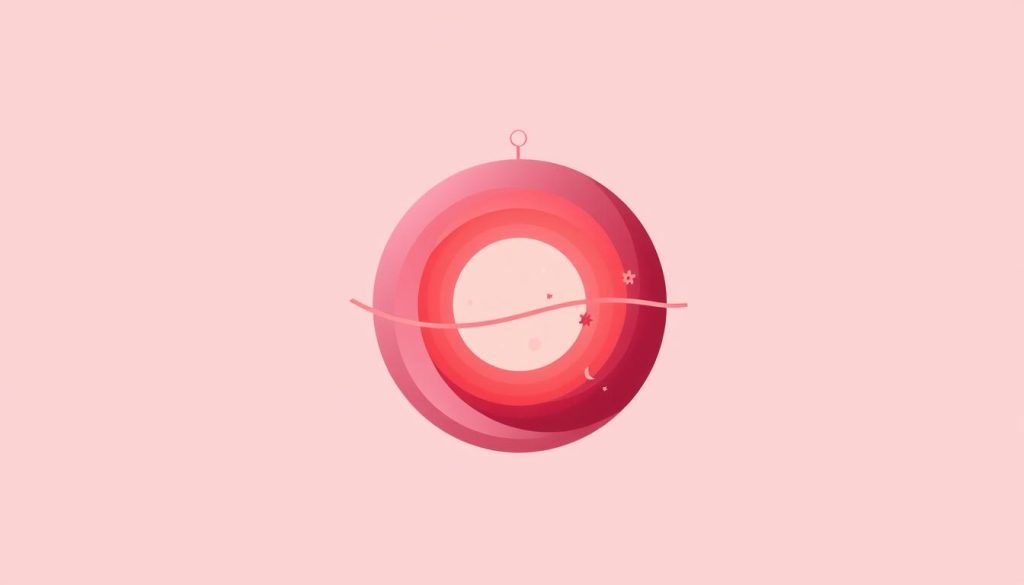
It’s important to know when a short cycle is normal and when it’s not. If you always have a 3-day flow, it’s a good idea to see a gynecologist. This can help find out if there’s a health issue that needs to be addressed.
When to See a Gynecologist About a 3-Day Period
Seeing a gynecologist is a must if your cycle changes suddenly, like going to a 3-day period. They can give you advice and help figure out any health problems early on.
Possible Health Concerns Linked to Shortened Cycle
A short cycle can mean different things, like hormonal imbalances or other health issues. Here are some possible concerns:
| Condition | Description | Related Symptoms |
|---|---|---|
| Polycystic Ovary Syndrome (PCOS) | A hormonal disorder causing enlarged ovaries with small cysts on the outer edges. | Irregular periods, excessive hair growth, acne |
| Thyroid Dysfunction | Abnormal activity of the thyroid gland, which affects overall metabolism and hormonal levels. | Weight fluctuation, fatigue, irregular pulse |
| Uterine Polyps | Noncancerous growths attached to inner wall of the uterus that extend into the uterine cavity. | Bleeding between periods, menstrual irregularities |
Knowing about these health links and getting medical advice early is key. If you think any of these might apply to you, talk to your gynecologist. Early treatment can make a big difference in your health and reduce worry about your menstrual cycle.
Factors That Can Influence a 3-Day Period Cycle
Many women notice their menstrual cycle can vary, sometimes lasting just a 3-day cycle. Knowing what affects period length helps us understand normal changes or when to see a doctor. Let’s look at some key factors that might shorten your cycle.
Age is a big factor; younger teens and women near menopause often see cycle changes, including shorter ones. Your weight also matters; being too thin or too heavy can mess with hormone levels, affecting your menstrual cycle duration. Certain health issues like thyroid problems or PCOS can also impact your periods.
To learn more about managing menstrual health, check out tips on managing hormonal imbalances. These can affect how long your period lasts.
- Dietary habits
- Exercise routines
- Stress levels
These factors can greatly affect hormone levels, changing how regular and long your periods are. High stress, for example, can cause hormonal imbalances, making your cycle shorter or less predictable.
Knowing what affects period length, like a 3-day cycle, helps women manage their menstrual health better. It’s important to keep track of cycle changes and talk to a healthcare provider. This can help keep your reproductive health in check.
Birth Control and Its Effects on Menstruation Duration
The link between birth control and menstrual cycle duration is complex. It changes based on the type of contraceptive. We explore how these methods affect menstruation, using insights from reproductive health experts.
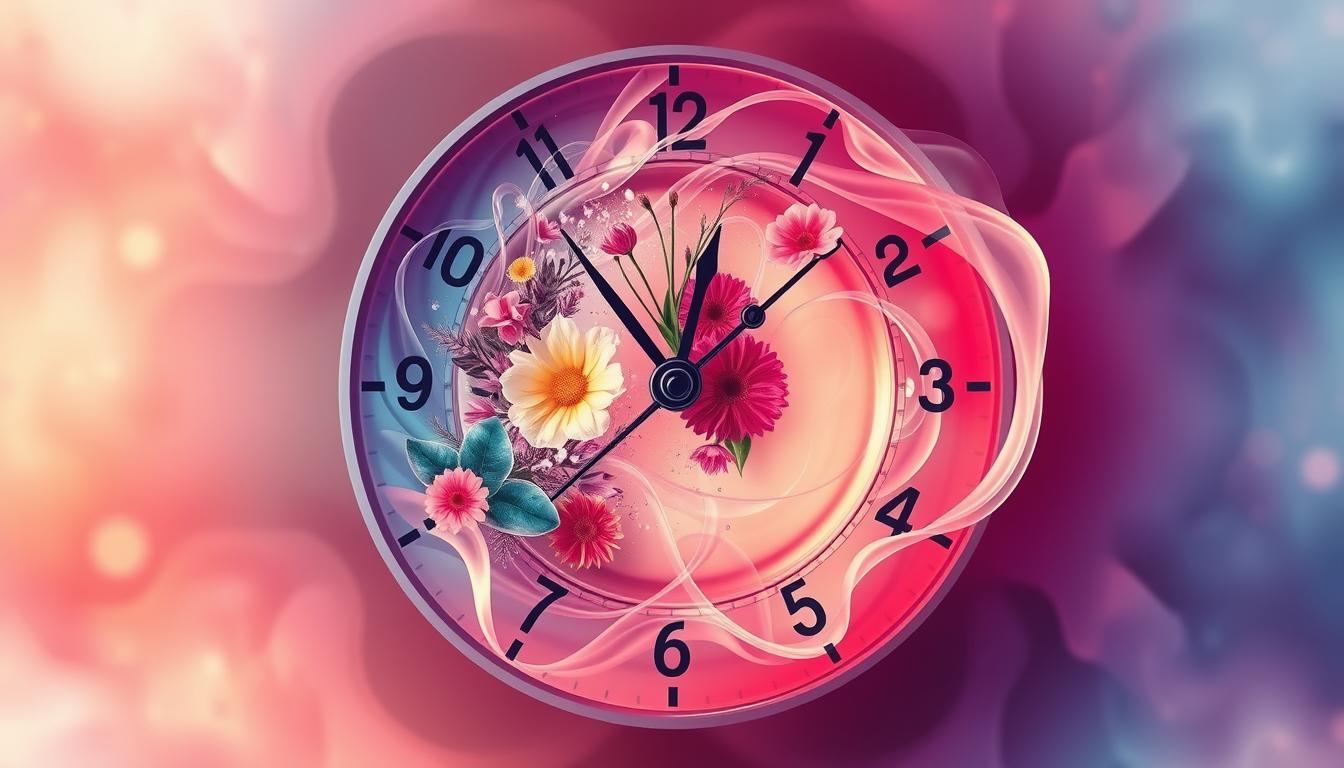
Knowing how hormonal birth control affects menstruation helps people make better choices about their reproductive health. Here are some important points:
- Combined oral contraceptives often lead to shorter and more regular menstrual cycles.
- Progestin-only pills might cause irregular bleeding patterns, at least in the first few months.
- Intrauterine devices (IUDs) could either minimize menstrual flow or stop menstruation, depending on whether they are hormonal or copper-based.
Hormonal contraceptives are used to prevent unintended pregnancies and manage menstruation better. Here’s a comparison of different birth control types and their usual impact on menstrual cycle duration:
| Type of Birth Control | Normal Effects on Menstrual Cycle |
|---|---|
| Combined Oral Contraceptives | Regulate and often lighten menstrual periods |
| Progestin-Only Pills | May cause irregular or no menstrual periods |
| Hormonal IUDs | Typically results in lighter periods or amenorrhea (absence of menstruation) |
| Implants | Irregular bleeding initially, possible cessation of periods over time |
While these insights into the effects on menstruation by birth control methods are a good start, individual experiences can differ a lot. It’s important to talk to a healthcare provider. They can help choose the right birth control for you and explain how it might affect menstrual cycle duration.
Navigating Hormonal Contraceptives and Menstrual Flow
It’s important to know how hormonal contraceptives change menstruation. Different birth control methods can affect menstruation length and health in different ways.
Types of Hormonal Birth Control That Affect Your Period
There are many hormonal contraceptives with different hormones. These hormones can change your menstrual cycle a lot:
- Combined oral contraceptives (COCs)
- Progestin-only pills (POPs)
- Contraceptive patches
- Vaginal rings
- Injectable contraceptives
These methods can change how long, how often, and how much you bleed during your period.
Understanding Menstruation Length while on Birth Control
Hormonal contraceptives can affect menstruation differently for everyone. Some might have shorter, lighter periods. Others might stop bleeding altogether, a condition called amenorrhea.
Studies show that these contraceptives usually make periods shorter and lighter. This is good news for those who used to have heavy periods.
If you’re thinking about or already using hormonal birth control, talk to your doctor about your period. This helps pick the right method for you.
Understanding hormonal contraceptives is key to making smart health choices. It’s about finding the right balance for contraception and managing menstrual symptoms.
Exercise and Diet: Their Impact on a Short Menstrual Period
The connection between exercise, diet, and menstruation is very interesting. A balanced diet and regular exercise can change how often you get your period. This might make your period shorter or more regular.

Many studies show that hard workouts and what you eat can change your period. Too much exercise or not eating enough can make your period shorter. But, doing things in moderation can help keep your period regular.
- Exercise: Doing very intense workouts can change your hormone levels. This might make your period shorter and less frequent.
- Diet: Eating too little of important nutrients, like fats and carbs, can make your period shorter too.
| Activity Level | Menstrual Cycle Impact | Dietary Factor | Menstrual Cycle Impact |
|---|---|---|---|
| Low | Little to no impact | Balanced | Regular, normal flow |
| Moderate | Stabilizes cycle | High in essential nutrients | Healthy cycle length |
| High | Shortens period | Low in fats/carbs | Shorter, lighter periods |
Eating well and exercising in a way that’s not too hard can help with your period. It’s important to eat enough vitamins and minerals and to exercise in a way that’s good for you. Everyone is different, so what works for one person might not work for another.
Age-Related Changes in Menstrual Cycle Length
As women get older, their menstrual cycles change a lot. These changes start slowly and get more noticeable as they get closer to menopause. It’s important to know about these changes to understand what’s normal and when to worry.
How Menstruation Evolves From Puberty to Menopause
At puberty, menstrual cycles can be all over the place but usually settle down after a few years. In the reproductive years, cycles can vary a bit. But in the late 30s and early 40s, women may see their cycles change, signaling perimenopause.
Recognizing the Signs of Perimenopause in Your Cycle
Perimenopause brings many symptoms that signal the start of menopause. Women might see their cycles get shorter or longer, and their flow can change. These signs show the hormonal changes happening as the body gets ready for menopause. Knowing these signs helps women prepare for the menopausal phase.
Medical Conditions That May Cause a 3-Day Period
Understanding the medical conditions behind a short menstrual cycle is key. It helps people find the right treatment and take care of their reproductive health. Many health issues can lead to a 3 day period, changing how long menstrual bleeding lasts.
Conditions like thyroid disorders, polycystic ovary syndrome (PCOS), and uterine fibroids can shorten menstrual cycles. They mess with the body’s hormonal balance, making periods last just three days. Let’s explore how these conditions affect menstrual flow:
- Thyroid Disorders: Both hyperthyroidism and hypothyroidism can cause irregular menstrual cycles, including shorter or lighter periods.
- Polycystic Ovary Syndrome (PCOS): PCOS can cause infrequent, irregular, or prolonged menstrual periods due to hormonal imbalance.
- Uterine Fibroids: These benign tumors on the uterine wall can lead to heavier and longer periods, but can paradoxically also cause very short periods depending on their size and location.
These medical conditions affect menstrual regularity and can impact fertility and overall health. It’s important to talk to a healthcare provider if you have a three-day period and other unusual symptoms.
The Connection Between Stress and a Rapid Menstruation
The link between stress and rapid menstruation is complex. It involves many biological and psychological factors. Knowing how stress affects menstruation can help manage its impact.
Stress causes the body to release cortisol, a hormone that affects menstruation. High cortisol levels can upset the balance, causing a shorter cycle or rapid menstruation. Studies show that women under stress may have more unpredictable periods, including shorter cycles.
Stress also affects menstrual health in other ways. Anxiety and stress can change menstrual symptoms, making them seem premature or rapid. It’s key for those experiencing these symptoms to try stress management and talk to healthcare providers.
| Impact of Stress | Result on Menstruation |
|---|---|
| Increased cortisol levels | Disruption in menstrual hormones |
| Psychological stress | Increased irregularity in cycle length |
| Chronic stress conditions | Potential for shortened or skipped periods |
Improving the connection to menstruation through lifestyle changes and stress reduction is beneficial. Activities like regular exercise, mindfulness, and enough sleep help reduce stress. They also promote a healthier menstrual cycle.
Tracking Your Menstrual Health: Important Considerations
In today’s world, knowing about menstrual health is key. It helps people make smart choices about their bodies. Tools like menstrual health tracking, keeping a diary, and using apps are essential for good health.
The Importance of Maintaining a Menstrual Diary
Keeping a menstrual diary helps spot regular patterns and any changes. It’s important to write down cycle length, how heavy the flow is, symptoms, and mood. This info is vital for doctors to find and treat health problems.
Utilizing Apps and Tools for Menstrual Cycle Tracking
Apps for tracking cycles have changed how we manage our health. They let users log daily info. This helps predict future cycles and when you might be fertile, helping you understand your health better.
Here’s a quick look at some popular cycle tracking apps and what they offer:
| App Name | Features | User Rating |
|---|---|---|
| App A | Predictive tracking, Symptoms log | 4.5 stars |
| App B | Menstrual diary integration, Health insights | 4.3 stars |
| App C | Fertility calendar, Community support | 4.6 stars |
Whether it’s a diary or an app, tracking your cycle is vital. It boosts awareness of menstrual health, making it a must for personal care.
Lifestyle Adjustments for Regulating a Brief Menstrual Flow
Many people find that regulating menstrual flow is easier with lifestyle adjustments. Making simple changes in your daily life can make a big difference. This section shares some key strategies to improve your menstrual health.
- Stress Reduction Techniques: High stress can mess with your hormones, making your cycle shorter. Try yoga, meditation, or walks to reduce stress.
- Enhanced Sleep Patterns: Good sleep is key for hormone balance. Aim for 7-9 hours of sleep each night to help your menstrual health.
- Dietary Modifications: Some foods are better for hormone balance. Eating more omega-3s, iron, and balanced meals can help regulate your flow.
Below, we explore specific lifestyle changes that help with a brief menstrual flow.
| Lifestyle Change | Benefits | Recommended Activity |
|---|---|---|
| Dietary Enhancement | Supports hormonal balance and enriches blood health | Include foods rich in iron, magnesium, and B vitamins |
| Regular Physical Activity | Promotes better hormonal health and decreases stress levels | Engage in at least 30 minutes of moderate exercise daily |
| Adequate Hydration | Essential for overall cellular health, which impacts menstrual cycle | Drink a minimum of eight 8-ounce glasses of water a day |
By making these lifestyle adjustments, you can not only regulate menstrual flow but also boost your overall health. Adding these habits to your daily routine can change a brief menstrual flow into a more regular and healthy one.
When to Seek Medical Attention for a 3-Day Period
A 3-day period might not always mean something is wrong. But, some symptoms and situations need immediate medical help. Changes in stress, diet, exercise, and birth control can affect your period.
If you keep having 3-day periods, it could be a sign of a bigger issue. It’s important to watch your symptoms and see a doctor. This can help find out if there’s a serious problem.
Changes in how much you bleed or how often you get your period should be talked about with a doctor. Severe pain, very light or heavy bleeding, or irregular cycles need quick attention. If you’re trying to get pregnant or think there might be hormonal problems, see a specialist.
Ignoring these signs can lead to missing important health issues. This includes reproductive health problems, thyroid disorders, or other health issues.
Trust your body and health. If a 3-day period worries you or comes with symptoms like fatigue, mood swings, or unexpected weight changes, get medical help. Talking to a doctor can give you peace of mind, help find the cause, and create a treatment plan that fits your health goals.
Being proactive about your menstrual health is key to your well-being. It’s about taking care of yourself and advocating for your health.
FAQ
Q: What is considered a normal menstrual cycle duration?
A: A regular menstrual cycle is about 28 days, give or take seven days. But, what’s normal can vary for each person.
Q: Can my period vary from month to month?
A: Yes, periods can change month-to-month. This is due to hormonal changes, lifestyle, and stress.
Q: What are common causes of a short menstrual period?
A: Short periods can be caused by hormonal changes, diet, exercise, and stress.
Q: Is a 3-day period normal?
A: A 3-day period is normal for some. But, if it’s a big change, talk to a healthcare professional.
Q: When should I see a gynecologist about a 3-day period?
A: See a gynecologist if your 3-day period is new and you have other symptoms. Or if you’re worried about your menstrual health.
Q: Are there any health concerns linked to a shortened menstrual cycle?
A: Yes, health issues like thyroid disorders and PCOS can affect menstruation length. Talk to a healthcare provider if you notice big changes.
Q: What factors can influence a 3-day period cycle?
A: Factors like age, body weight, exercise, stress, and medical history can influence a 3-day period.
Q: How does birth control affect menstruation duration?
A: Birth control, like the pill, can make periods shorter or even stop them.
Q: Which types of hormonal birth control are likely to affect my period?
A: Most hormonal birth control methods, like the pill and patch, can change period duration and flow.
Q: Can diet and exercise impact the length of my menstrual period?
A: Yes, too much exercise and big weight changes can affect menstruation. So can dietary deficiencies, like low iron.
Q: How does menstruation change from puberty to menopause?
A: Menstrual cycle length and flow change over a person’s life. They tend to stabilize in reproductive years but can become irregular and shorter near menopause.
Q: How can stress lead to a rapid menstruation?
A: Stress can cause hormonal imbalances, leading to quicker menstruation or irregular cycles.
Q: Why is it important to track menstrual health and what tools can I use?
A: Tracking menstrual health is key to spotting irregularities or patterns. Use menstrual diaries and cycle tracking apps to keep an accurate record.
Q: What lifestyle adjustments can help regulate a brief menstrual flow?
A: Managing stress, getting enough sleep, and eating well can help regulate your menstrual flow. If problems persist, see a healthcare provider.
Q: Under what circumstances should I seek medical attention for a 3-day period?
A: Seek medical attention if your 3-day period is a sudden change from your usual cycle. This is true if it’s accompanied by other symptoms like extreme pain or heavy bleeding.












